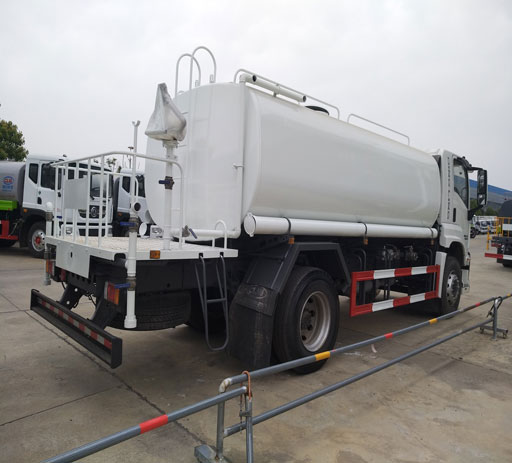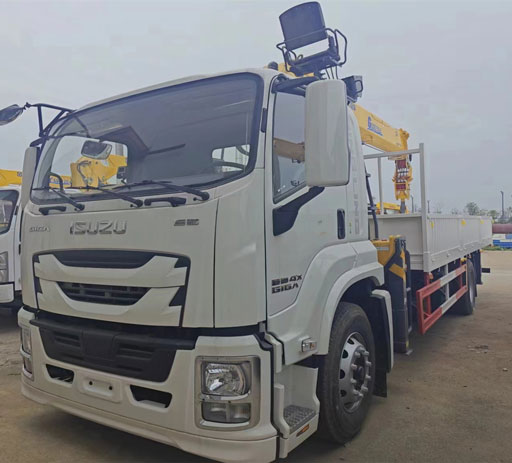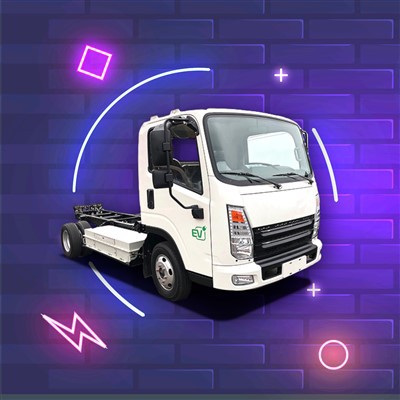Ultimate Guide to Mobile Stage Trucks: Everything You Need to Know
Mobile stage trucks are revolutionizing how we host events, concerts, and shows. As a portable solution for live performances, they are designed to provide a fully functional stage setup while being easily transportable. This article dives into the specifics of mobile stage trucks, their advantages, design features, types available, and much more.
What is a Mobile Stage Truck?
A mobile stage truck is essentially a vehicle outfitted to function as a fully functional stage. It can be driven to various locations, making it ideal for outdoor events like music festivals, corporate gatherings, and community celebrations. These stage trucks come equipped with audio and visual equipment, lighting, and other amenities necessary for a successful performance.
Advantages of Using Mobile Stage Trucks
1. Portability and Convenience
One of the biggest advantages is portability. Mobile stage trucks can easily move to different locations, making it convenient for organizers.
2. Cost-Effectiveness
Renting a mobile stage truck can be more cost-effective than building a stage from scratch, especially for one-off events.
3. Quick Setup and Breakdown
Mobile stage trucks allow for quick assembly and disassembly, which is a significant time-saver for event planners.
4. Built-in Equipment
Many mobile stage trucks come pre-equipped with sound and lighting systems, removing the hassle of rental arrangements.
Types of Mobile Stage Trucks
1. Standard Mobile Stage Trucks
These are equipped with a basic stage setup and are versatile enough for a variety of events.
2. Concert-Configured Stage Trucks
Ideal for music festivals, these trucks typically feature enhanced sound systems and lighting designed for concerts.
3. Customizable Stage Trucks
Some mobile stage trucks can be tailored to meet the specific needs of your event. Organizers can add particular amenities or equipment as required.
Comparison Table: Types of Mobile Stage Trucks
| Type | Best For | Key Features |
|---|---|---|
| Standard | General Events | Basic stage setup, sound, and lighting |
| Concert-Configured | Music Festivals | Advanced sound systems, multiple lighting options |
| Customizable | Specific Needs | Tailored features and equipment as per demand |
Design Features of Mobile Stage Trucks
1. Stage Size and Height
Most mobile stage trucks come with adjustable stage sizes and heights, allowing event organizers to choose what best fits their needs.
2. Sound and Lighting Systems
Quality sound and lighting are crucial for any event; hence most mobile stage trucks come with these built-in features.
3. Safety Features
Safety features like guard rails, non-slip surfaces, and secure access points are vital for performer and audience safety.
Choosing the Right Mobile Stage Truck
1. Consider Your Event Type
Your choice of a mobile stage truck should depend on the nature of your event. For large concerts, a concert-configured truck might be ideal, while smaller events could suffice with a standard setup.
2. Budget Constraints
Set a budget that takes into account transportation costs, rental fees, and additional equipment. Mobile stage trucks can often fit various budgets.
3. Duration of Your Event
For events lasting several days, it may be worth investing in a customizable mobile stage truck to better meet logistical requirements.

Tips for Planning an Event with a Mobile Stage Truck
1. Start Early
Book your mobile stage truck as early as possible to ensure availability.
2. Coordinate with Local Officials
Ensure you have the necessary permits and permissions for outdoor events.
3. Promote Your Event

Use social media and other marketing channels to attract attendees.
4. Have a Backup Plan
Always plan for weather disruptions or logistical issues, including a contingency for your mobile stage truck.
Event Examples Utilizing Mobile Stage Trucks
1. Music Festivals
Many famous music festivals across the globe rely on mobile stage trucks for their concerts, offering flexibility and quality.
2. Corporate Events
Companies often use mobile stage trucks when hosting annual meetings or product launches, allowing customizable presentations.
3. Community Fairs
Local community events can greatly benefit from budget-friendly, portable stage options.
Maintenance Tips for Mobile Stage Trucks
1. Regular Inspection
Perform routine checks on the sound and lighting systems, as well as structural integrity, including tires and brakes.
2. Cleanliness
Keep the truck clean to maintain equipment in good working order and prolong its lifespan.
3. Avoid Overloading
Always adhere to weight restrictions to avoid equipment failure or accidents during events.

Frequently Asked Questions (FAQ)
1. How much does it cost to rent a mobile stage truck?
Rental costs for mobile stage trucks vary significantly based on location, size, and included equipment, typically ranging from $1,500 to $10,000 per day.
2. How long does it take to set up a mobile stage truck?
Setup times can range from 30 minutes to a few hours, depending on the truck’s complexity and additional equipment.
3. Can I customize my mobile stage truck?
Yes, many rental companies offer customizable features to meet the specific needs of your event.
4. Are mobile stage trucks safe for large crowds?
Yes, when used correctly and maintained properly, mobile stage trucks are designed with safety in mind.
5. Do I need a special license to drive a mobile stage truck?
It depends on the vehicle’s size and weight. Generally, a commercial driver’s license may be required for larger trucks.
6. Can a mobile stage truck be used indoors?
Yes, as long as the space accommodates the size and height requirements of the truck and meets safety regulations.
